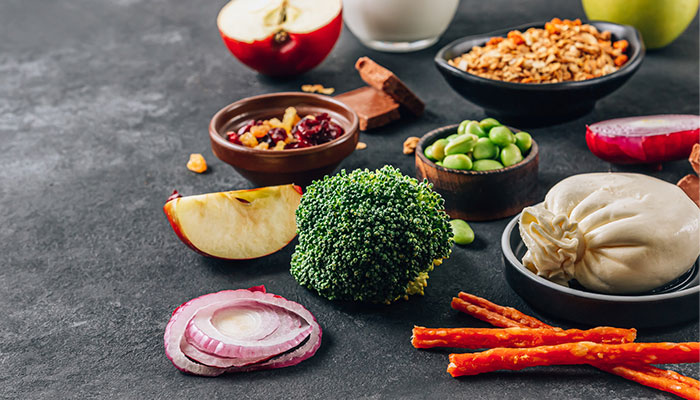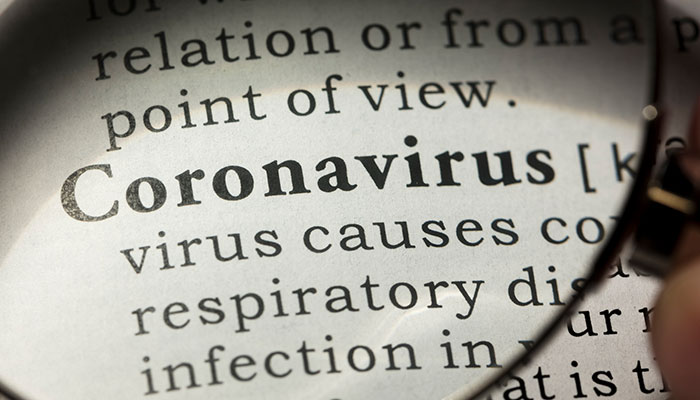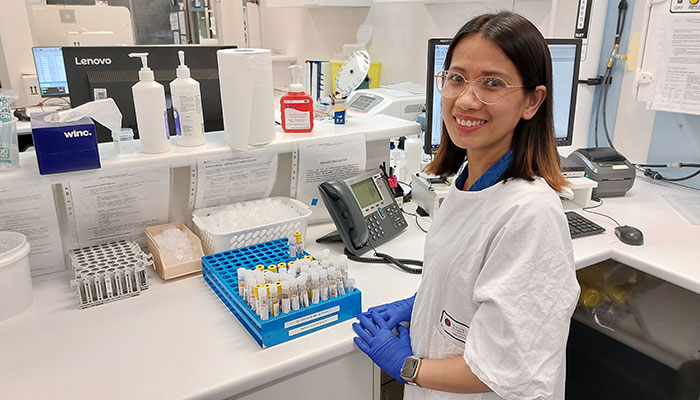Irritable bowel syndrome (IBS) is a common problem characterised by abdominal pain, gas, bloating, diarrhoea and constipation.

Still a mystery: while the exact cause of IBS remains unknown, doctors have identified a host of probable triggers and treatments, says Professor Rupert Leong.
The symptoms vary from person to person, but some people predominantly have diarrhoea, some mainly constipation, while others experience both.
MQ Health Gastroenterologist Professor Rupert Leong says IBS can run in families, and adolescence is a common time for it to first appear, with the stress associated with the HSC a common starting point.
“It can come and go, it doesn’t worsen over time,” he says.
“Diet is a big factor, and symptoms are usually triggered by foods that are higher in fermentable carbohydrates, leading to more gas production and more water entering the bowel.
“The exact cause of IBS isn’t known, but there’s an increasing understanding that the gut microbiome has an important role to play.”
We all have our own individual combination of microorganisms living in our intestinal tracts, including beneficial bacteria that help us digest food and keep our immune systems on track.
The anxiety factor
The balance of this biome is delicate and can be easily affected by the introduction of bad bacteria or antibiotics.
Disruptions to the biome can lead to the abnormal breakdown of some foods, producing compounds that are toxic to the cells lining the gut.
About one in 10 patients’ problems begin with a bout of infectious gastroenteritis.

Gut-brain connection: Professor Rupert Leong, pictured, says some cases of IBS are linked to anxiety and stress, with HSC students one group commonly affected at the time of exams.
“This post-infection IBS tends to be more common in people who have had severe gastro that has been treated with antibiotics, but it is also common for them to have an underlying anxiety disorder,” Leong says.
“It appears there are four factors at play in a complex interaction to make the gut hypersensitive.
“The first three are the original inflammation from the gastro infection, the patient’s own gut microbiome, and what they’re eating at the time.
There is no reliable evidence that probiotics are useful for the long-term treatment of IBS.
“The fourth is the gut-brain axis, a two-way exchange of information between the gut and the brain, which is where anxiety comes into play.
“IBS can also contribute to making anxiety worse, because as you might imagine, people can become concerned about going out, and being able to fulfil commitments.”
How is it treated?
There is no cure for IBS, but the good news is that it can be treated.
General practitioners are well-versed in IBS treatment. They can recommend over-the-counter and prescription medications to calm spasms in the gut, reduce constipation or, more recently, act on the cells lining the gut to reduce hypersensitivity.
When anxiety is a problem, anti-anxiety medications and gut-focused psychotherapy can also be of benefit
“There is, however, no reliable evidence that probiotics are useful for the long-term treatment of IBS,” Leong says.
“We hear from some patients that their bloating decreases when they take probiotics, but they’re expensive and they’re not evidence-based.
“Avoiding the unnecessary use of antibiotics is one of the best things you can do to maintain a healthy gut microbiome.”
Elimination diets can help
In about three-quarters of cases, undertaking a low-FODMAP diet will reduce IBS symptoms.

Triggers: Avoiding high-FODMAP foods such as those pictured above is known to keep IBS symptoms at bay, says Professor Leong.
Fermentable oligosaccharides, disaccharides, monosaccharides and polyols (FODMAPs) are the short-chain sugars found in most dairy products, and some fruits, vegetables, legumes, grains and sweeteners.
Foods that are high in FODMAPs include apples, pears, apricots, peaches, blackberries, figs, dates, watermelon, broccoli, cabbage, cauliflower, garlic, onions, mushrooms, sweeteners like high‑fructose corn syrup and honey, most dairy products, beans and lentils, grains including wheat, barley and rye, and drinks such as beer, fortified wines, sugary soft drinks and soy milk.
“Diets are complex, especially if you have other requirements or deficiencies, so if your GP suggests a low-FODMAP diet, make sure you see a dietitian to guide the process,” Leong says.
“Usually, you remove high-FODMAP foods from your diet for two months, then gradually reintroduce them to work out the amounts that trigger your symptoms.
“But FODMAPs perform an important prebiotic function that keeps the gut healthy by allowing all our beneficial microorganisms to thrive, so it’s vital that you don’t cut them out completely in the long term.”
What else could it be?
Several conditions that come under the umbrella of inflammatory bowel disease (IBD) share some symptoms with IBS.
These include Crohn’s disease and ulcerative colitis, which are characterised by diarrhoea, bleeding, abdominal pain, bloating, fatigue and weight loss. Coeliac disease, an autoimmune disease in which even tiny amounts of the gluten from wheat are toxic, is another possibility.
“It’s important to know what the cause is, as the treatments are quite different,” Leong says.
“Your GP will probably order further testing to rule out these other diseases, and in the past that meant day procedures like gastroscopy, endoscopy or colonoscopy.
“However, a simple test using a stool sample has recently been added to the Medicare Benefits Scheme that can tell you in as little as a week whether you have IBD.”
Professor Rupert Leong is a Senior Staff Specialist Gastroenterologist at Macquarie Medical School and Macquarie University Hospital.



